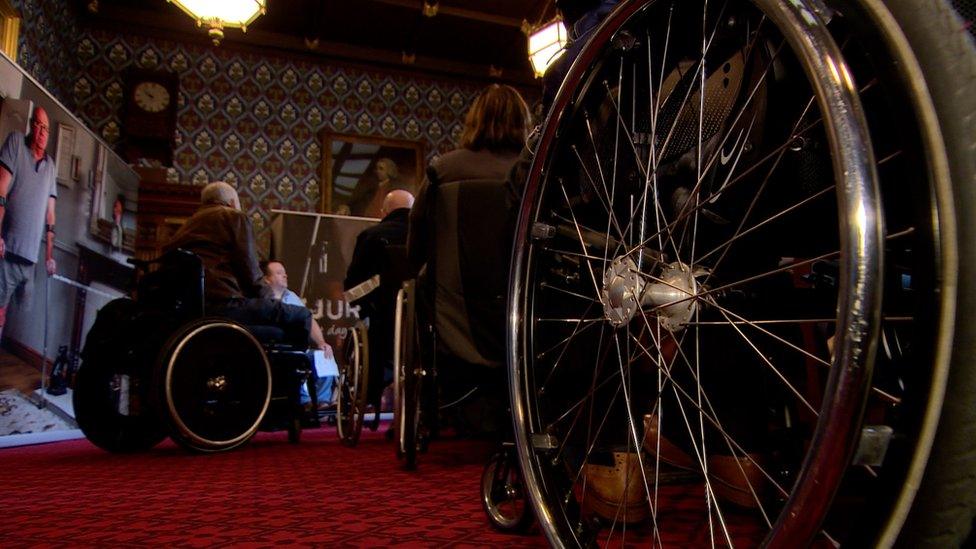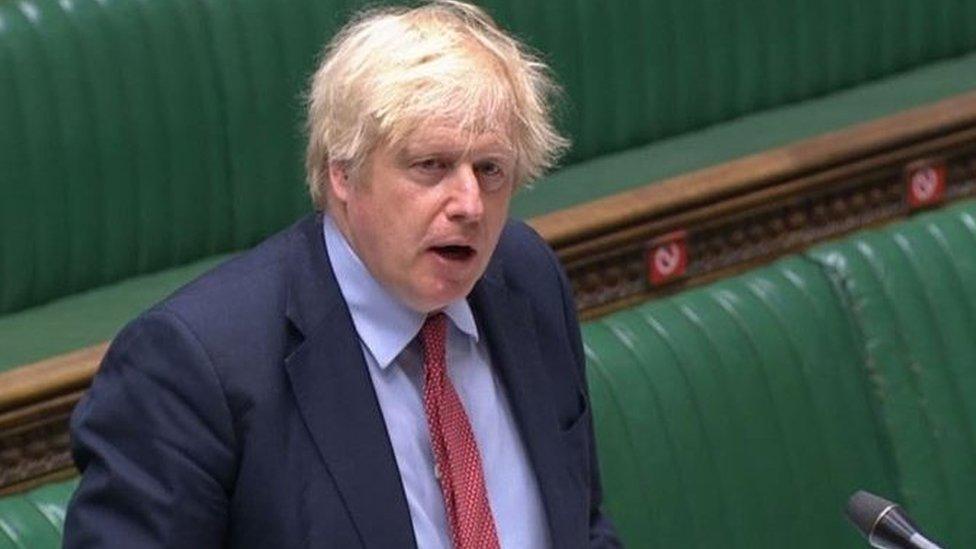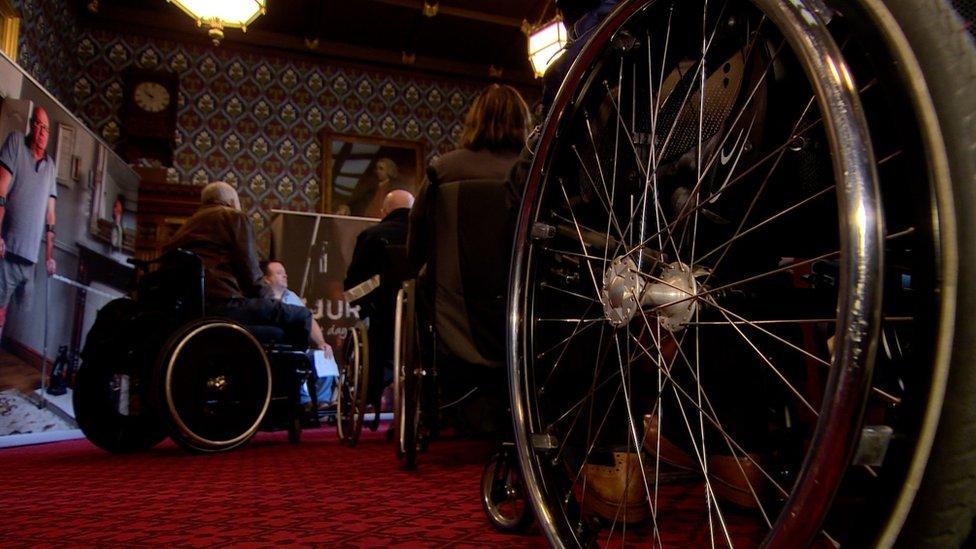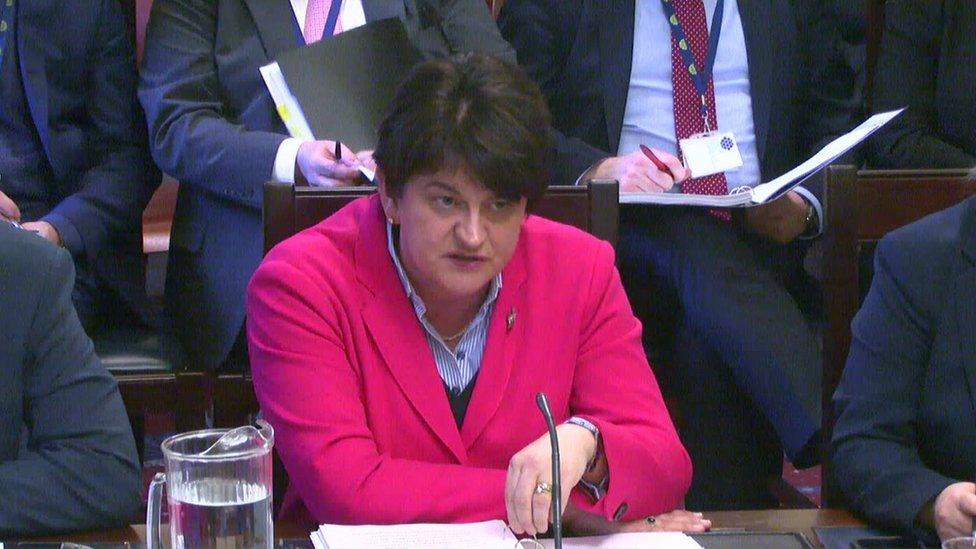Troubles pension: Plans to publish guidelines on hold
- Published

People injured in the Troubles have led a long campaign for financial support
Plans by Secretary of State Brandon Lewis to publish the latest draft guidelines on the Troubles pension have been put on hold.
The latest draft guidance was due to be published on Wednesday. It has not yet been shared with parties at Stormont.
It is not clear when the details will be released.
Sinn Féin said the guidelines shared with the party so far discriminate against former prisoners and are far removed from the legislation.
However, the Northern Ireland Office (NIO) has disagreed.
Along with the DUP, the NIO has accused Sinn Féin of blocking the pension payments by refusing to nominate the Justice Department to oversee the scheme.
The draft guidelines on the Troubles pension will set out how a judge-led panel will decide who is entitled to payment.
Earlier, Prime Minister Boris Johnson said said he believed the pension was a "fair, balanced and proportionate way" of helping all those who suffered in the Troubles.
His comments came during prime minister's questions, when DUP MP Sir Jeffrey Donaldson called on the government to push for the scheme to begin immediately.

Boris Johnson was speaking in the House of Commons on Wednesday
"It's very important that Sinn Féin along with all other parties allow the scheme to go forward as soon as possible," Mr Johnson told the Commons.
Under previous draft guidelines leaked to BBC News NI, former prisoners who served more than 30 months could be refused a pension if there were no other mitigating factors.
The judge could use other "material evidence" to reject applications in "exceptional circumstances".
But the Northern Ireland Office (NIO) said only those injured by their own hand would be excluded.
Others with convictions can apply and the panel will assess their eligibility.
The roots of Northern Ireland’s Troubles lie deep in Irish history
Lawyers representing some people intending to make applications for payments, have written to the secretary of state seeking a number of clarifications, including:
If a claimant's criminal record and sentencing remarks from their trials can be accessed by the Victims' Payment Board;
If "the PSNI or other security or intelligence agency receive notification when an application is made for a victim's payment under the regulations, and if so, which agencies.
Earlier this week, BBC News NI obtained the three-page "confidential" draft set of guidelines circulated to all the Stormont parties.
The document also detailed the "guiding principles" the judge-led panel should use when assessing applications from those with a "relevant conviction".
These are "generally convictions carrying longer than 30 months".
They apply to the most "serious crimes such as murder, actual bodily harm etc", the paper stated.
Under the guidelines, an application can also be rejected if the president of the board decides the "exceptional circumstances of the case having regard to material evidence" makes payment inappropriate.
That evidence includes:
Recent terrorist activity as evidenced by the applicant being convicted of a Terrorism Act Offence;
The applicant being a registered terrorist offender;
Having a recent conviction for membership of a proscribed organisation;
If the person caused wholly or in part the incident in which they were injured as evidenced by a case or action proven to a civil standard.
The Ulster Unionists, SDLP and Alliance have called for the payment scheme to be implemented immediately.
There is also gridlock over whether London or Stormont pays for the scheme, which is estimated to cost much more than the £100m stated.
- Published7 June 2020

- Published4 June 2020

- Published3 June 2020

- Published4 March 2020

- Published5 February 2020

- Published3 February 2020

- Published31 January 2020
